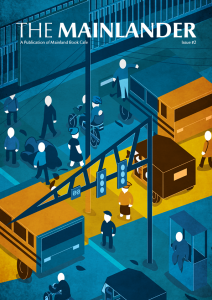Originally published on Dhaka Tribune
I published my first book in Nigeria in 2005. It was a collection of stories edited by my father and released by his one-man company. The day the printer delivered the books was memorable: imagine my eagerness as I grasped my first-ever copy, then stared at it in disappointment: dreadfully designed, atrociously typeset, abominably printed – it is still the ugliest book I’ve ever touched.
Over the next two years I distributed the books myself; hence, I know that less than one hundred copies were sold. The left-over nine hundred were handed out to anyone who didn’t refuse the gift.
In the beginning, I was convinced I could make a living from my sales. Nigeria had a population of more than one hundred million, and so one thousand books, even ones as unattractive as mine, would sell quickly. Like many self-published authors before me, I figured wrong.
By 2007 I was disenchanted enough with DIY publishing to take up a job with a traditional publisher, where I spent the next two years learning everything about why my book had failed.
I republished the book in 2008. My father supplied the money to print one thousand copies, but it was my employer that supplied the publishing manpower, albeit unofficially.
When the printer made the delivery, I was astonished that the same book could look so different. While the first edition had never found a place on my bookshelf, this one would. Even better, it would sell. I had it all figured out; I would use my employer’s distribution network.
Lagos had a population of about twenty million, and so one thousand books, especially ones as attractive as mine, would sell quickly. I did more than hope this time: I invested in publicising the book. I pitched myself to newspapers as an interview subject; I went on a book tour; I organised monthly book readings at the largest bookstore chain in Nigeria; and, finally, I resigned my job in publishing and began writing again.
The second edition of my book sold out in 2011, three years after publication. Logistical expenses guaranteed a commercial loss, exacerbated by systemic hindrances, the most infuriating being the booksellers who cheat publishers out of their sales earnings – a common practice in Nigeria.
By this time I had realised that I wanted to be a full-time writer, not a part-time publisher or a half-hearted book promoter.
What worried me was my future as a writer in Nigeria. If I’d learned anything since 2005, it was that it was impracticable for any investor to turn a profit from selling literary fiction in a market as difficult as Nigeria. All those hardscrabble years spent as a local talent had confirmed to me that success for most writers in English – whether African or Australasian or Asian – depends on the publishing powerhouses of the West, mainly in New York and London.
I knew where to go if I wanted success.
My second book was published in 2013. It was a collection of stories edited by foreigners and released in the US, the UK, and Nigeria.
– Please click HERE to read the complete essay.



